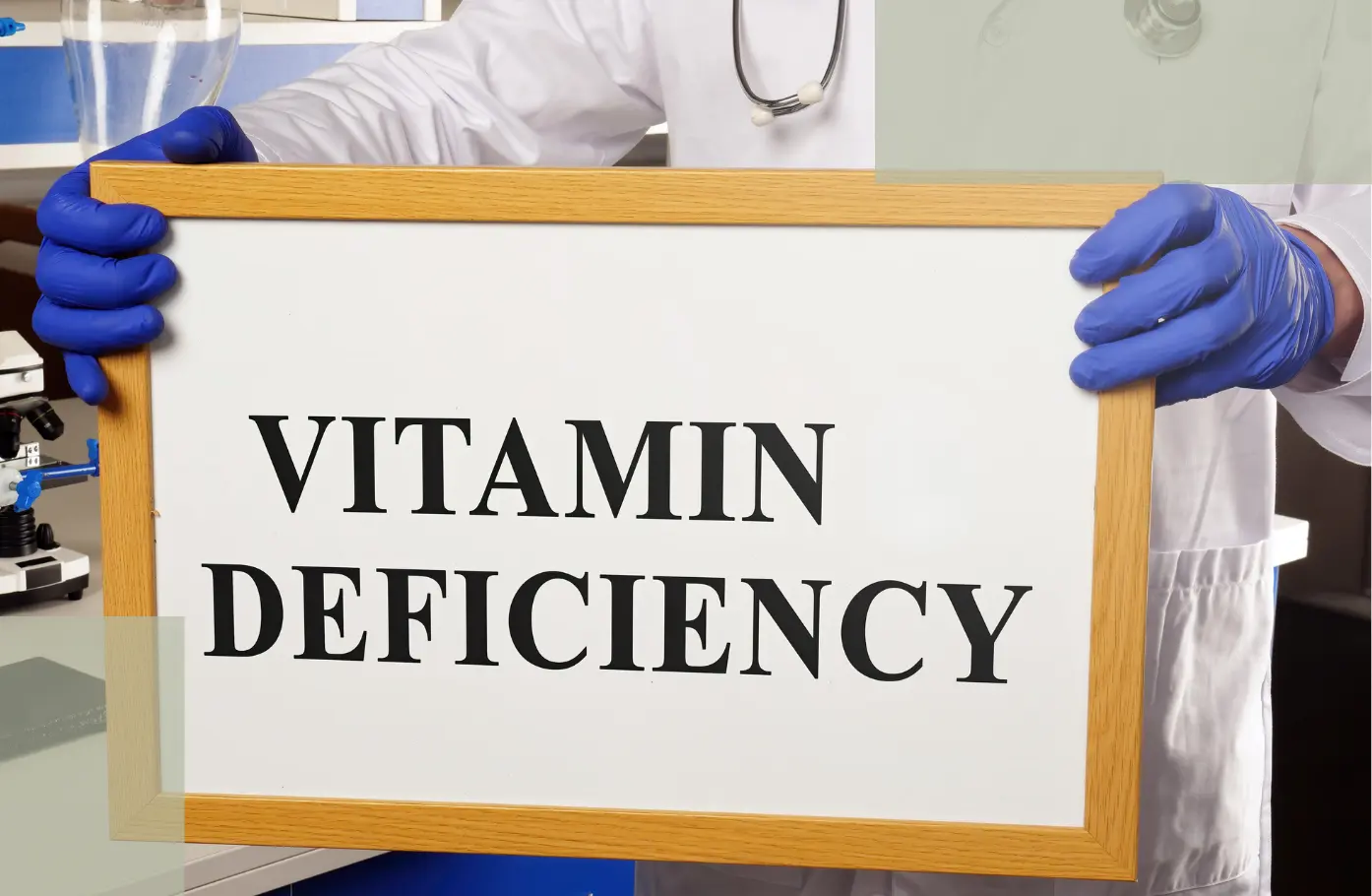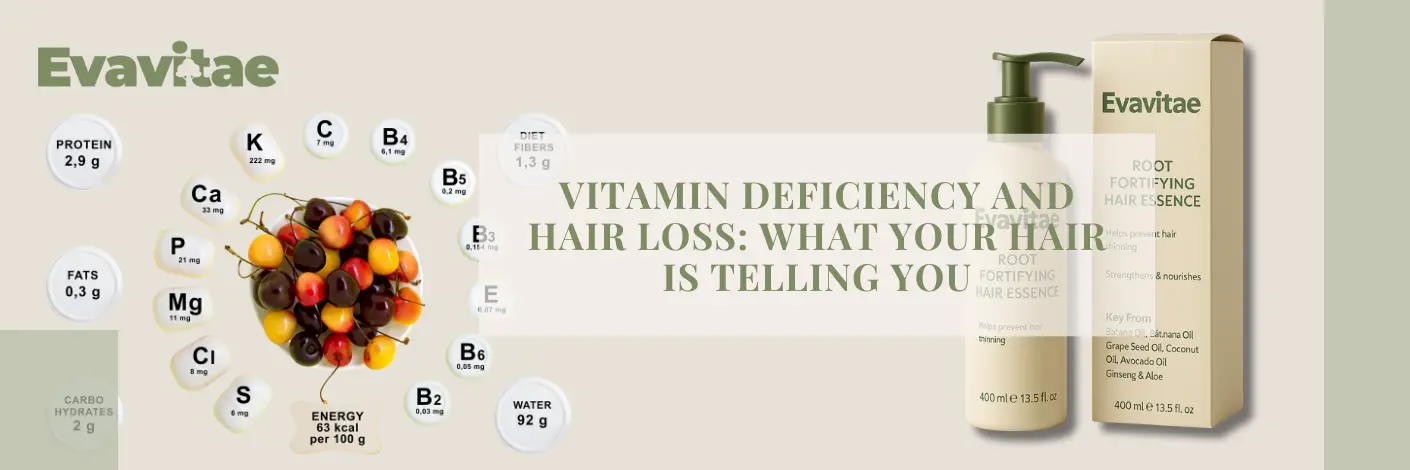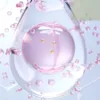
Hair loss can be distressing, affecting not only your appearance but also your confidence. While genetics, hormonal changes, and stress are common culprits, nutritional deficiencies—especially in essential vitamins and minerals—are often overlooked causes. Your hair is a fast-growing tissue that requires a constant supply of nutrients. When the body is lacking in key vitamins, the hair growth cycle can be disrupted, leading to thinning or excessive shedding.
In this article, we will explore how different vitamin deficiencies contribute to hair loss, the mechanisms behind them, and what steps you can take to restore balance for healthier, stronger hair.
How Vitamin Deficiency Causes Hair Loss
Hair growth follows a cycle with three main phases: anagen (growth), catagen (transition), and telogen (resting). Adequate nutrition ensures that most hair follicles remain in the anagen phase. When your diet lacks vital vitamins and minerals, the hair cycle can shift prematurely into the telogen phase, resulting in diffuse thinning or noticeable bald patches.
Deficiencies may affect hair growth in multiple ways:
- Reducing keratin and collagen production, weakening hair structure.
- Impairing blood flow and nutrient delivery to the scalp.
- Increasing oxidative stress, damaging hair follicles.
Let’s examine the most common nutrient deficiencies linked to hair loss.
1. Iron Deficiency – The Leading Nutritional Cause
Iron is essential for producing hemoglobin, the protein in red blood cells that carries oxygen to tissues—including the scalp and hair follicles. Without enough oxygen, follicles become stressed and can enter a resting phase prematurely.
Signs of iron deficiency hair loss:
- Gradual thinning across the scalp
- Fatigue, pale skin, brittle nails
High-risk groups: Women of reproductive age, vegetarians, and individuals with heavy menstrual bleeding are particularly susceptible.
Scientific evidence: Studies confirm a strong link between iron deficiency anemia and telogen effluvium, a temporary but significant hair shedding condition (Moeinvaziri et al., 2009).
2. Zinc Deficiency – Weakening Hair Structure
Zinc plays a key role in protein synthesis and cell division—both crucial for hair tissue growth. It also helps maintain the oil glands that protect hair shafts.
When zinc is deficient, hair shafts weaken, leading to breakage and increased shedding. In severe cases, patchy hair loss (alopecia) can occur.
Other symptoms of zinc deficiency:
- White spots on nails
- Slow wound healing
- Increased susceptibility to infections
3. Vitamin D Deficiency – Follicle Activation Issues
Vitamin D isn’t just for bones—it is vital for hair follicle cycling. Research shows that vitamin D receptors in the follicles help regulate hair growth phases. Low vitamin D levels may prevent dormant follicles from reactivating, leading to hair thinning.
Who’s at risk:
- People with limited sun exposure
- Those living in northern latitudes
- Individuals with darker skin pigmentation
A 2013 study found significantly lower vitamin D levels in women experiencing hair loss compared to healthy controls (Rasheed et al., 2013).
4. Vitamin B12 Deficiency – Impaired Oxygen Delivery
Vitamin B12 is essential for red blood cell production and nervous system health. Without enough B12, oxygen transport to hair follicles is reduced, leading to slow growth and excessive shedding.
Common causes:
- Vegetarian or vegan diets without supplementation
- Pernicious anemia
- Gastrointestinal disorders affecting absorption
Symptoms may include numbness in extremities, fatigue, and pale skin, in addition to hair changes.
5. Biotin (Vitamin B7) Deficiency – Rare but Notable
Biotin is often marketed as the “hair vitamin” because it supports keratin production. While severe biotin deficiency is rare, it can lead to brittle hair, hair loss, and even loss of eyelashes and eyebrows.
Causes of biotin deficiency:
- Long-term consumption of raw egg whites (contains avidin, which binds biotin)
- Genetic disorders affecting biotin metabolism
- Certain anticonvulsant medications
Among all the nutrients linked to hair health, Biotin stands out for its role in supporting keratin production and overall scalp balance. Discover more in our in-depth guide on how Biotin for hair loss fits into a holistic approach to restoring growth and resilience.
6. Other Vitamins and Minerals to Watch
- Vitamin C: Essential for collagen synthesis and iron absorption. Deficiency can lead to weak, brittle hair.
- Vitamin E: A potent antioxidant that protects follicles from oxidative stress.
- Selenium: Required for antioxidant enzyme function and scalp health.
- Vitamin A: Among the many vitamins linked to hair health, Vitamin A deserves special attention — both deficiency and excess can cause shedding. Learn more in our detailed breakdown on Vitamin A and hair loss and how to find the right balance.
While deficiencies in these nutrients are less common, they can still contribute to unhealthy hair when combined with other dietary gaps.
How to Identify a Vitamin Deficiency Causing Hair Loss
If you’re experiencing unexplained hair loss, it’s important to consult a healthcare provider before starting supplements. Blood tests can identify deficiencies and guide appropriate treatment.
Common tests include:
- Serum ferritin (iron stores)
- Vitamin D levels
- Vitamin B12
- Zinc
Restoring Balance – Dietary and Lifestyle Tips
- Eat a nutrient-rich diet:
Include lean meats, fish, eggs, leafy greens, nuts, seeds, and whole grains.
- Consider supplementation carefully:
Supplement only under medical guidance, as excessive intake of some vitamins (like vitamin A) can cause hair loss instead of preventing it.
- Address absorption issues:
Gut health impacts nutrient absorption—conditions like celiac disease or inflammatory bowel disease should be managed to prevent deficiencies.
- Get adequate sunlight:
Just 10–15 minutes of midday sun exposure can help maintain healthy vitamin D levels.
When to Seek Medical Help
Seek professional evaluation if you notice:
- Rapid hair thinning over a few weeks or months
- Hair loss accompanied by fatigue, brittle nails, or skin changes
- Patchy bald spots or scalp inflammation
Early detection and targeted treatment can help reverse deficiency-related hair loss in most cases.
Final Thoughts
Vitamin deficiency hair loss is often reversible once the underlying nutritional imbalance is corrected. Your hair can serve as an early warning sign of deeper health issues. By paying attention to your body’s signals and maintaining a balanced diet, you can protect both your hair and overall health.
Remember: supplements are not a substitute for a healthy diet, and too much of certain vitamins can be as harmful as too little. Always consult a qualified healthcare provider before making major changes to your nutrition or supplementation plan.
For best results, use a gentle, non-irritating shampoo. I recommend Evavitae shampoo. Check its ingredient list to see its natural, healthy ingredients. If you’re willing to invest more time in your haircare routine, you can also try its hair care kit.
Explore every stage of postpartum hair recovery — causes, care, and confidence — in our Main Postpartum Hair Loss Hub.
📚 References (APA Format)
Moeinvaziri, M., Hosseini, S. M., & Rashidi, B. (2009). Iron status in diffuse telogen hair loss among women. Acta Dermatovenerol Croat, 17(4), 279–284.
Rasheed, H., Mahgoub, D., Hegazy, R., El-Komy, M., Abdel Hay, R., & Hamid, M. A. (2013). Serum ferritin and vitamin D in female hair loss: Do they play a role? Skin Pharmacology and Physiology, 26(2), 101–107. https://doi.org/10.1159/000346698
NIH Office of Dietary Supplements. (2023). Vitamins and minerals fact sheets. National Institutes of Health. https://ods.od.nih.gov/
Harvard T.H. Chan School of Public Health. (2022). The nutrition source: Vitamins. https://www.hsph.harvard.edu/nutritionsource/vitamins/
Evavitae products are now available exclusively at www.evavitae.com.




Add comment
You must be logged in to post a comment.